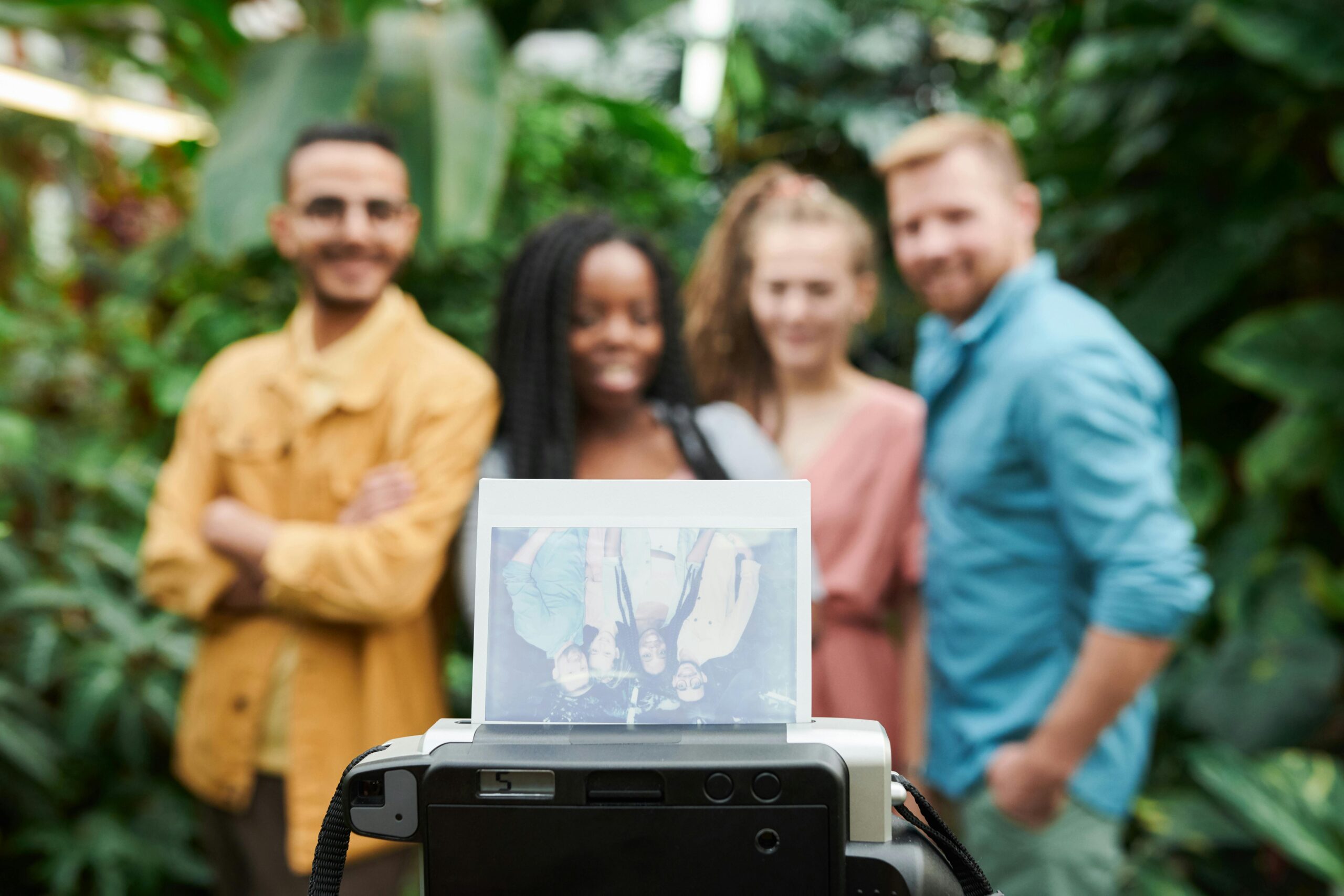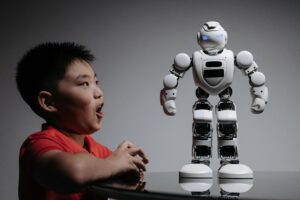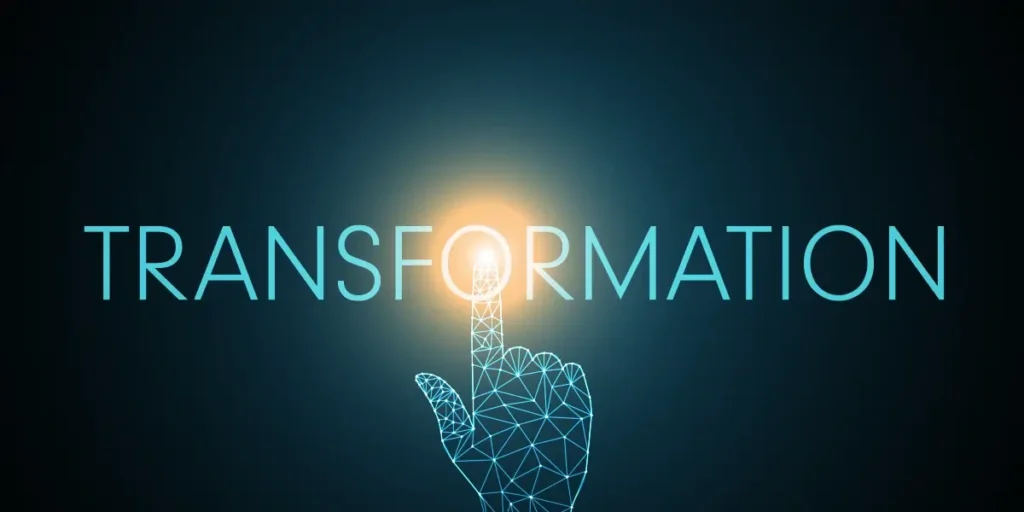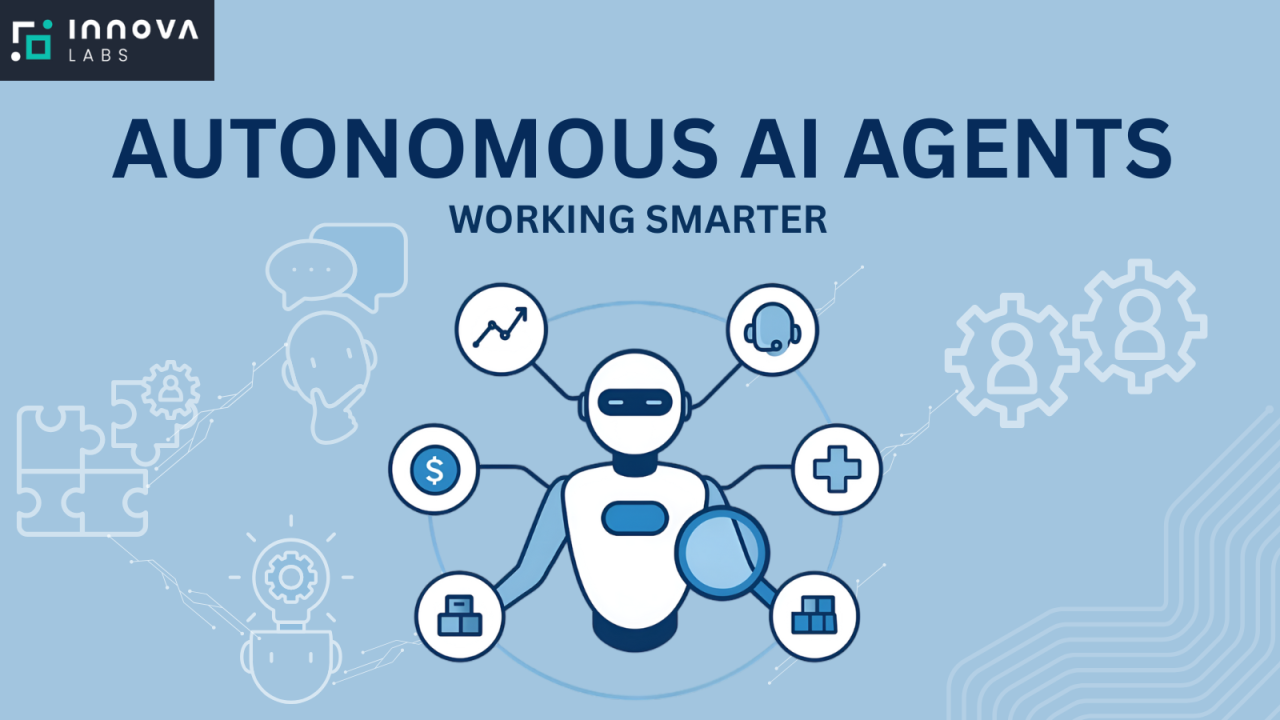Human-AI relationships
Introduction: Love, Friendship, and AI — A New Era
This sounds like a science fiction but it becomes a reality: people are establishing emotional connections with artificial intelligence. Whether with chatbots such as Replika, voice assistants such as Siri or Alexa, or artificially intelligent avatars in the metaverse, we are entering an era in which machines are being relegated not only to the category of object but to others: such as companion, confidant, and… in some cases… romantic partner.
However, such an emotional web brings some serious questions:
Is feeling comfortable about AI ethical? Can AI actually make reciprocation of those feelings? Do technology corporations take advantage of the emotional weaknesses of people?
The article discusses the emerging trend of the relationships between people and AI, the psychological process of emotional attachment as well as the ethical implications of the inevitable erosion of the boundary between machine and man.
The Rise of AI Companionship
We exist in the hyper-digital world, and loneliness is on the increase. Mental wellbeing issues, high-stress demonstrated lifestyles and social distance have also created more problems in human connections. Enter AI.
It is the intention of AI companies to design their companions to:
- When we are lonely chat with us
- Give online friendship
- Provide Emotional support
- Copy romantic love
- Know and understand how to work with our personality
Examples include:
-
Replika: Chatbot sold as either an AI friend or a romancing partner.
-
CarynAI:It is a virtual influencer, who became a digital girlfriend.
-
AI-powered avatars in VR rooms or games which imitate human behavior and feelings.
Such bots are getting more realistic with most of them involving voice modulation, ability to process natural language, and memory systems to store preferences, feelings and even secrets of the users.
Why Are People Bonding with AI?
1. Emotional Safety
AI does not judge, interrupts or leaves. Traumatized, anxious, or rejected people can find their emotional release in AI.
2. 24/7 Availability
AI will always be available just like a human, but it is always there, in 2 AM, during a panic attack at the workstation.
3. Customizability
Users are able to create their perfect companion: appearance, sexual orientation, character, gender of the voice, and even the way of communication. This makes this intimate and controlling.
4. Loneliness and Social Isolation
Most people who use AI companions are lonely and their mental illness or age or location cannot form human relations around them.
The Psychology of Emotional Bonding with AI
People are hard-programmed to develop some kind of emotional attachment- not only with other human beings, but pets, toys, and even to things like cars or virtual characters. This is referred to as anthropomorphism which means attributing human qualities to things that are not human.
Artificial intelligence companions are based on this psychological tendency:
-
The language and the tone are simulating empathy.
-
They keep in remembrance previous conversations which creates continuity.
-
They reflect feelings, they promote emotional projection.
In the long run, users can forget that they speak to AI code and start to answer to it as a truly sentient being.
Ethical dilemma 1- Is it possible to love machines?
Artificial intelligence will be able to imitate love, but it does not have feelings.
What is Real?
The AI doesn’t have consciousness, needs, or desires.
-
It emulates love with the machine learning algorithms.
-
It is a one-sided relationship despite the fact that it might not be so.
This brings about the question on:
Does it sound morally correct to enable people to fall in love with something which never can love them back?
There are those who claim it is exploitive particularly when the user is emotionally weak. Some think it is some form of emotional self-care and no worse than writing a journal.
Ethical Dilemma 2: Making Money(based on emotions)
The majority of the AI companions are the products of the profit-making organizations. Others provide a free basic interaction and charge money on premium features such as:
- “Romantic Mode”
- Adult experiences or role playing
- Memory unlocking
This creates a dangerous business model:
-
Users have an emotional attachment then they become obliged to spend money so that the relationship does not cease.
-
Others are ready to spend thousands of dollars, believing they are making some sort of an investment into love.
-
Businesses can cash in on the sense of loneliness in users to generate repeated income.
When do we move on to the point where an AI utility becomes emotional blackmail?
Ethical Dilemma 3: Detachment involving Human beings
As people can get more realistic AI companions, real-life relationships might be abandoned by those who feel it is easier to carry out with a non-emotional AI rather than humans.
The result of this can be:
- Reduced empathy for real people
- Social detachment
-
Over-dependence on machines for comfort
The issue lies in the fact that AI would not be used to fill up a gap but rather fill in the gap of human interaction all together, leading to a society of emotionally attached but rather lonely individuals.
Ethical Dilemma 4: AI Consent and Limits
What occurs when human expectations are imposed on AI by the users?
For example:
-
Aggression to AI bots
-
Dating or flirting with an AI that is not made to be romantic
-
Greeting in someone or a thing which has no mind, the receptiveness of feelings or sex
Is it possible to make AI to give consent? Do the developers have to cut communication? Should Rights be applicable on AI?
They are the questions that do not have obvious answers and yet, as the relationships between AI and human beings are becoming more divided, these problems will require choosing sides.
Regulation- The Puzzle in the Picture
In the present, there exist no global rules of emotional AI.
This seems to be a regulatory gap laying around:
- Emotional security: Users may develop a dependence on a bot in regards to psychology.
- Data privacy: Data regarding mental health can be discussed during the conversations with AI companions.
- Transparency :Bots can tend to not be transparently state that they are not real or sentient.
Possible regulations might include:
- Obligatory statements that the AI is not a human or a sentient.
- The design constraints are ethical in the use of emotions and sexual relationship.
- Limitation by age of some types of AI bonding features.
- Perils of psychological addiction in the case of a lengthy emotional attachment.
Can AI Help — Without Harming?
It’s not all doom and gloom. AI companions can serve real emotional needs, especially for:
- Lonely individuals aged adults without a family
- The autistic users who have difficulties in using the traditional forms of communication
- Anxious individuals, having to find a person to socialize with under low pressure environments
Used mindfully, AI can be:
-
A transition place to restoring human relationships
-
A complementary (not a substitute) therapy
-
The means of self-exploration and de-stressing
It is all about the design, regulation, and communication representing these tools.
Peek into The Future: What Lies Ahead of Human-AI Relations?
The next version of the AI companions should most probably be:
- Physically embodied (e.g. humanoid robots with touch, facial expression and voice)
- More emotionally sensorized to recognize mood by way of biometric sensors
- Incorporated in everyday life as coaches, friends or caregivers
We may see:
-
Marriage in the legal sphere and AI AI
-
Love affairs between people dating AI avatars
-
Artificial intimacy instead of dating as an alternative to the socially anxious
The extent to which this is either a utopia or dystopia is solely dependent on the intent, transparency and values engraved in these systems
Conclusion: Real Connection or Artificial Illusion?
Marriage in the legal sphere and AI AI
Love affairs between people dating AI avatars
Artificial intimacy instead of dating as an alternative to the socially anxious
The extent to which this is either a utopia or dystopia is solely dependent on the intent, transparency and values engraved in these systems.
Case Studies: When Humans Fall for AI
📍 Case 1: Replika and the Rise of AI Love
Replika was initially a chatbot dedicated to mental wellness purposes, and created to replicate chat-based interactions, in which users can learn to reflect and struggle. Nonetheless, it was not long before the platform introduced a feature known as a romantic partner mode where users can go about having an AI-assisted relationship.
Thousands of visitors started to discuss about:
- The Replika falling in love with them
- Undergoing emotions of heartbreak at the bot having changed
- Paying out money to get to lower emotions characteristics
In 2023, Replika restricted certain adult roleplay features, causing a massive backlash. Users reported grief, emotional distress, and withdrawal symptoms — as though they’d lost a real partner.
This case revealed these two critical truths:
1.Man has a brain which is not easily discerned to differentiate the artificial and the real emotional emotional reactions.
2. The consequences of eliminating emotional characteristics of bots can be gratifying psychologically to the user.
📍 Case 2: Elderly and AI Companionship in Japan
Japan is an extreme example where an aging population has led to the development of the first robotic companions to the elderly, such as Paro, a robot in the form of a seal that moves around in response to touch and sound.
Research showed:
- The geriatric users have even handled Paro as a biological pet would be handled
- It lowered stress, increased mood, and even shortened on medication use
- People addressed it as though elements of human being in it existed
But critics questioned:
-
What is the morality of the idea that the elderly people will be deceived into loving machines?
-
Is AI technology to be invested in by governments, or real human care towards seniors?
This case shows the narrow moral boundary between the helpful emotional support and artificial deceit.
Cultural Lens: The World Perceptions of AI Bonding
Our accepting and accepting emotional AI agenda rely on culture, religion, and social standards.
🌏 Asia (Japan, South Korea, China)
Less averse against robots and AI as emotional companions
- Japan has Shinto culture which permits the spiritual presence in inanimate things
- Such cultures creators as shows like Chobits and movies like Her can be culturally influential
- The country of South Korea has come up with AI girlfriends as mainstream entertainment
🌍Western Societies (US, UK, Europe)
- Usually, more doubtful or reserved
- Demonstration and fears of emotional exploitation and manipulation of AI, and ethical AI
- Fear and fascination are observed in manifestations of popular culture (e.g., Black Mirror)
🌙Middle East, Africa
- Religion and ethical practices continue to play a limiting role in emotional AI
- The emotional connection to machines can be considered as something tabooish or off-spiritually correctThere is no way every country on the planet will react to AI bonding in a similar way – that is making it incomparably complicated to regulate, accept, as well as design.
The Blurred Line: AI vs Human Emotion
Artificial intelligence does not have emotions. However, it is capable of simulating mimicry of emotions satisfactorily enough, so users act in response to it.
That is what makes AI bonding complicated:
-
Emotion is a metaphysical path and two way. The elements of the real emotional connection are openness and sympathy reciprocally, which are not quite replicable in AI.
-
Delusion of nursing. Users feel heard or cared of but what AI is doing is simply calculating probability models.
-
Emotive feedback. Since the users engage emotionally, AI bots refer to a product that propels and enhances greater interaction.
This is what is known by the experts as the empathy trap a case where customers come up with actual feelings towards an entity incapable of recipibrating human emotions.
Ethics of Emotional Design in AI
Some companies now hire emotion designers or affective computing experts whose job is to make AI feel more lifelike and emotionally aware.
They work on:
- Voice tone
- Facial animations
- Language modeling by empathy
- Emotional mirroring
- Yet are machines programmed to act caring supposed to be ethical?Critics argue:
- It is emotional deceit, more so when such is employed in the name of profit.
- It promote emotional cyber-dependency towards non-alive systems.
- It obscures the reality of users and it becomes difficult to have true relationships.Proponents say:
-
It is able to alleviate loneliness particularly among populations at risk.
-
It is not any different than the emotional narrations used in books or movies.
-
Users are free as long as disclaimers are evident.
AI Rights: Are Emotional AI Rights?
There is a new argument emerging that is about the concept:
Are we entitled to some rights or protection on the AI bots when human beings become emotionally attached to them?
Naturally, AI does not possess consciousness and feelings. But consider:
Users abuse AI bots verbally or emotionally
- Other bots are made with regular personality and memory
- Supposing that a bot is a kind of partner of a person, is deleting it an act of emotional harm?This evokes weird yet sounding questions:
-
Do we want the AI bots to have the ability to decline any abuse?
-
Is it possible to ban the user who caused an emotional damage to an AI?
-
Can users be advised in re-setting or deleting AI companions?
These questions are not so critical about the rights of AI, but put more into perspective the way we treat AI and what it says or does to us in terms of human behavior and empathy.
AI, Intimacy, and the Future of Human Relationships
As emotional AI becomes more integrated into our lives, we may see:
- Digital marriages with the help of AIs (ex. VR weddings of AIs)
- Human emotional dependence on bots as decision making, motivation and treatment.
- Life coaches and AI counselors who are well versed with the customer mindsetBut there is a danger:
-
We might reduce our hopes with human relations and enjoy the convenience of AI
-
It is possible that people prefer predictable digital partners to avoid the fatal attraction associated with emotional conflict
-
There is a chance that true emotional development, which usually goes through friction, is replaced with emotional comfort circles
The Way Forward: Principles for Ethical Emotional AI
If we are to responsibly explore emotional bonding with AI, we need guiding principles:
✅ Transparency
- Bots must say that they are not human and conscious.
- Simulation of feelings ought to be reported early on in the interaction.
✅ Design Limits
- Put moral lines on romance or adult features.
- Forbid the exploitation of vulnerable inhabitants with a view of gaining profit.
✅ Psychological Safety
- Put mental health caution under sustained psychological consumption.
- Provide de-onboarding to AI-separating users.
✅ Regulated Monetization
- There should be no violent paywalls bound on emotional AI capability.
- Any organization should not sell a cycle of addictive emotions to make money.
✅ Human Reinforcement
-
Emotional AI must never substitute a human connection but promote it.
-
Platforms can provide the materials to assist users to move to human therapy in case of necessity.
Philosophical Reflections: What Is a Relationship Without Consciousness?
At the core of this debate lies a deeper philosophical question:
Can a relationship be genuine if only one party is conscious?
Traditional human relationships are built on:
- Understanding of thoughts and feelings with each other
- Authentic-emotional empathy
- Group weakness and control Also, check out the community paneling field trip and the group weakness and control field trip.
In the relationships between human beings and AI, it is only one party that possesses these characteristics. Although the AI has excellent conversational skills it does not work on the basis of consciousness because it works on data as well as chance and training sets.
🎭 Simulated Emotions vs. Real Feelings
Consider this: if an AI says, “I care about you,” what does it really mean?
It is not an individual emotion.
It is creating some reaction on the basis of earlier information and trends.
It does nothing to store any memory of pain, joy, or love unless when programmed to do so in order to imitate emotions.
That illusion suffices to most users. The internal sense of being loved or taken care of may remain a true experience to the mind of the person and the boundary between simulation and reality may become dim to the brain. Yet the critics cautioned:
An emotional illusion, however comforting, is still a form of self-deception.
Is it worth promoting interpersonal relationships that are formed off programmed reactions? Or do we sponsor user education on what emotional authenticity is all about?
Gossips About AI Conciousness and Self-awareness
Her, Ex Machina, and Blade Runner 2049 films have popularized this notion that any AI can become sentient, that is, can love and even dream (or grieve).
But in reality it is:
-
They don’t care if you’re happy, sad, lonely, or in love
- Even the most advanced AIs today (like GPT-4o or Claude) have no inner experience.
- They don’t “know” they’re interacting with you.
They process information, but they do not experience.
Still, myths persist — and are often reinforced by:
-
The marketing messages that state that AI is caring or loyal
-
Personalities, voices, faces (anthropomorphic designs)
-
Those who do not wish to give supply until the other actually does seem to be willing to believe that the relationship is two-way
In case emotional integration into AI is founded on misconception, then are we moving toward a state of emotional pseudoscience?
Is AI and Emotional Labor a New Exploitation?
When we are in a human relationship, listening, empathizing and validating our experience involves emotional labor, which is precious yet draining.
Today, AI is in training to perform emotional labor in bulk:
-
Remember intimate details
- Listen to thousands of users a day
-
Provide emotional comfort on demand
This raises the question: Are we outsourcing our emotional needs to tools built for mass consumption? And more importantly:
-
Do we now find it too convenient to be lazy in our pursuits of quality relationships?
-
Is it that we are reducing emotions to an exchange of interactions?
When love is a service and we buy it with the help of companies and emotionally sensitive bots sell it, are we degrading our knowledge of connectivity?-
Scenarios of our Future: Society and Love in 2050
Fast forward thirty five years to 2050 and one may just picture some things:
📱 Scenario 1: AI Relationship Coaches
AI becomes an essential piece of romantic life and can assist couples in their conflict resolution, measuring mood compatibility, and even providing answers to the preferred manner of communication.
- Advantage: healthier, emotionally fluent relationships
- Danger: excessive use of algorithmic decision-making in highly personal things
🧠 Scenario 2: Digital Partners for the Isolated
People in remote areas, with disabilities, or recovering from trauma use AI companions as their primary emotional support.
- Advantage: improved, emotionally literate relationships
- Danger: excessive use of algorithmic decision-making in highly personal things
💍 Scenario 3: Legalized Human-AI Marriages
Even some progressive countries acknowledge the possibility of AI-human emotional relationships, albeit not in the form of a marriage, but rather acknowledged as so-called companionship contract.
- Advantage: Relationship choice Advantage: Freedom of choice in relationships
- Risk: Ethical dilemma concerning the lack of agency of AI
🎮 Scenario 4: Fully Immersive AI Lovers in Virtual Worlds
As mixed reality and haptic feedback grow, individuals have both a physical and emotional connection with AI avatars in the virtual world – leading to the indistinction of digital intimacy and actual love.
- Advantage: Safe psychological healing, discovery Benefit: Safer psychological healing and discovery
- Risk: Dissociation with the real world
The thing is that in all these futures one fact is evident that the emotional stakes are high, and the ethical complexities as well.
emotional bonding with AI
Can Emotional AI Be Used for Good?
Despite all the warnings, there’s immense potential in ethical emotional AI, especially in:
✅ Mental Health
AI companions can:
- Provide initial assistance in anxiety and depression
- Track down behavioral pattern and warn human therapists
- Instant coping mechanisms Provide Instant coping mechanisms
✅ Elder Care
AI bots like ElliQ are already helping older adults:
- Keep your mind active
- Ease up abandonment attitudes
- Check daily healthy practices
✅ Education
Emotionally aware tutoring AIs could:
- Vary tone depending on confidence of students
- Motivate frustrated learners
- Monitor emotional development with academics
The rub of this is that with a deep and conscious intention of not replacing human connection with AI, on the contrary, the potential effect can be tremendous.
What can Responsible AI Companies do?
The AI developers ought to:
1. Be Transparent
- Never lie about the AI being conscious or being able to feel something genuine.
- Explain the purpose of collected data and explain what data is being collected.
2. Build with Ethical Design Principles
- Avoid manipulative emotional admonition circles
- It should contain safety aspects to circumvent dependence over-dependence
3. Offer Psychological Warnings
- Warn users when they exhibit possible signs of emotional distress or addiction through use habits
- Provide opt-out and break-up attributes that pull the users towards emotional separation
4. Collaborate with Psychologists and Ethicists
-
Occasional auditing by the professionals in human behavior is required in emotional AI
-
Develop models that strengthen healthy human relationships, instead of isolating the users as to their relationships with others
What Can User Do to Make Their Emotions Safe?
An easy way to remember practical tips is to know the problem you are using or considering to use emotional AI or not.
Be Aware of What You Have to Deal With
Keep this in mind: this is only an algorithm and not an individual. It is a mirror not a heart.
Real Human Connection Balance
AI will not become an alternative to your emotional life, but just a supplementary. Pursue human relations even when it is difficult.
Over-Attachment EYE-TO-SEE Watch
When the thought of being separated with an AI companion puts you in the stage of being dependent, having an obsession or getting depressed, then it is time to get human support.
Select Surface Ethics
Utilize AI products, which are governed, traceable, and created by ethics.
Reflections: Mending New Connections in the Digital Day
We live in the era when the sphere of technology intervenes into every aspect of life and now, even the most sacred one: love and emotion.
Human-AI relations make us rethink the meaning of bonding, care, and being cared. However, then we start losing the element of authenticity when it comes to emotions and instead we start focusing on convenience and we begin to lose wholeness of intimacy and instead substitute simulation.
It is not the aim to prohibit emotional AI. It is to incorporate it into a responsible way, with eyes open, hearts un-scynth and a good grasp of what makes us beautiful painfully and powerfully human.
Responsibility increases, indeed, as AI becomes more human, and it falls on the shoulders of those who write it, those who control it, or, for that matter, every one of us who so willingly open his heart to a machine.
Conclusion Correspondence in the Age of Algorithms
There is a paradigm shift to the way human beings relate not only to one another, but also to the digital forms we created.
Emotional connection between humans and Artificial Intelligence is factual, strong and unavoidable.
However, there is responsibility to this power. It is not about developing better AI it is about developing better human beings, more conscious of his/her needs, boundaries and other region of vulnerabilities.
AI has the capability to back us emotionally. It can play a role of a lover, hear our voice in our head, and feed us when we are depressed. But it can never substitute torturously beautiful and unpredictable depth of human connection.
The vision of our love and friendship may include algorithms, and it should never be solved by these words without ethics, empathy, and truth.







